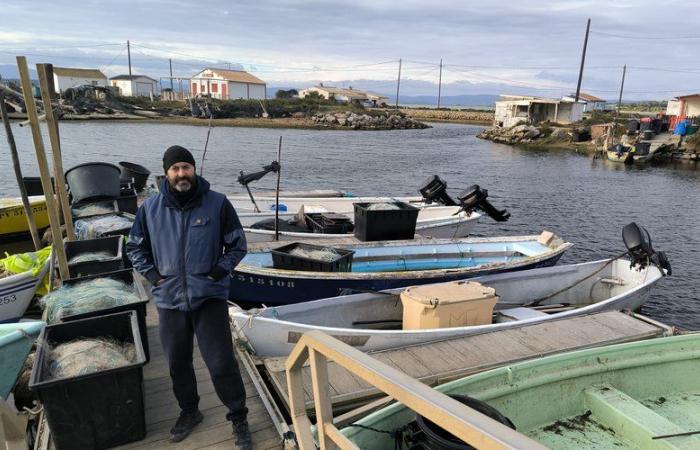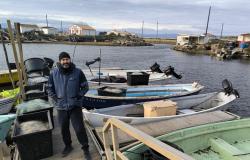
Sébastien Gaubert, former first industrial tribunal of Gruissan and president of the Aude and Pyrénées-Orientales fisheries committee, explains the reasons for the “Dead Ports” operation carried out on the coast of Port-Vendres in Grau-du- King these December 9 and 10. He warns about the situation of fishermen and eel fishing while the issues of quotas have been debated for two days.
Why these two “dead ports” days in Occitania? What problems did you want to raise through your mobilization?
Sébastien Gaubert: In Brussels, fishing quotas are currently being debated at European level and also a trawl fishing plan which will impose new restrictions in the Mediterranean. Eel management at European level is also discussed. Hence our mobilization with these two “dead ports” days. There is therefore no economic activity linked to fishing and the ports are at a standstill while all the fish markets in Occitanie are closed. There is no marketing of fish during these two days.
If the auctions are no longer economically viable, they risk closing
What demands are you making as part of these days of action?
In addition to the support provided to trawlers, it is above all in relation to the impact that this plan will have. Trawlers have between 170 and 180 fishing days authorized today. The new plan wants to reduce them to 100 days and impose new protected maritime areas. The indirect effect is that the supply of fish to the auctions will significantly decrease, and if the auctions are no longer economically viable, they risk closing and the entire sector will be unbalanced. Small businesses, we have the possibility of retailing, but this is only a small part of our fishing and the activity takes place mainly during tourist periods. If there is good fishing in winter, there is only the auction as a means of marketing the fish. It's like a house of cards, everything is going to collapse.
Eel fishing here is ancestral and cultural
What is happening with the eels?
The eel has been included in an international convention, Cites (Convention on International Trade in Endangered Species of Wild Fauna and Flora), since 2009. It is classified as endangered, but the stock has been reviewed on the rise and would be improving. There was a big effort from the fishermen. There were previously 600 licenses, there are 120 today. There are fewer samples, attention has been paid to our mesh size. We are making a lot of efforts and we have the impression that we are not being heard by the European Union because the only solution they want to put in place are new restrictions. Two years ago, from nine months of opening for eel, we went to six months. There, we don't know where we're going to go. There may be new measures for 2026. We are very worried because this could put traditional fishing in ponds in difficulty, especially in those in our region in Occitanie. This fishing is a traditional, ancestral, historical and cultural fishery which risks disappearing because it will no longer be viable and the fishermen will turn to other professions.
What messages do you want to send about the future of fishing in Occitania?
We would like us to stop putting obstacles in our way and really take local specificities into account. They never came to see it there! Let them come see how we work! A lagoon, a pond, is not a swimming pool. There is nothing uniform and our equipment, our techniques, our ways of fishing are adapted for this. The regulations that we take in the industrial tribunal are different from one pond to another. We would like local specificity to be taken into account and for them to listen to professionals. The real problem with the eel is not the harvest, because in 20 years, we have divided the number of licenses by six and the eel is stable. It does not disappear, but it is true, the resource does not increase. The real problem is pollution, the lack of fresh water supply, the lack of maintenance of dams, fish passages. Nobody listens to us, the only solution for them is to reduce the number of fishermen or to ban us from going fishing.





